ABACAVIR/LAMIVUDINE - ORAL
PHONETIC PRONUNCIATION: (a-BAK-a-vir/la-MIV-ue-deen)
COMMON BRAND NAME(S): Epzicom
GENERIC NAME(S): abacavir sulfate/lamivudine
Uses
USES: This product contains 2 drugs: abacavir and lamivudine. It is used with other HIV medications to help control HIV infection. It helps to decrease the amount of HIV in your body so your immune system can work better. This lowers your chance of getting HIV complications (such as new infections, cancer) and improves your quality of life. Abacavir and lamivudine both belong to a class of drugs known as nucleoside reverse transcriptase inhibitors (NRTIs). Abacavir/lamivudine is not a cure for HIV infection. To decrease your risk of spreading HIV disease to others, do all of the following: (1) continue to take all HIV medications exactly as prescribed by your doctor, (2) always use an effective barrier method (latex or polyurethane condoms/dental dams) during all sexual activity, and (3) do not share personal items (such as needles/syringes, toothbrushes, and razors) that may have contacted blood or other body fluids. Consult your doctor or pharmacist for more details.
How to use ABACAVIR/LAMIVUDINE - ORAL
HOW TO USE: Read the Medication Guide and Warning Card provided by your pharmacist before you start taking abacavir/lamivudine and each time you get a refill. Carry the Warning Card with you at all times. If you have any questions, ask your doctor or pharmacist. Take this medication by mouth with or without food, usually once daily or as directed by your doctor. Because this combination product has fixed doses of abacavir and lamivudine, it should only be used if your doctor has determined that the doses of both medications in this product are right for you. If you stop taking any medication containing abacavir even for a short time and then restart the drug, you have an increased chance of developing a very serious (possibly fatal) allergic reaction. Refill your medication before you run out. Do not stop treatment unless directed by your doctor. Before restarting any medication containing abacavir, consult your doctor or pharmacist, and be sure you have easy access to medical care. It is very important to continue taking this medication (and other HIV medications) exactly as prescribed by your doctor. Do not skip any doses. Do not increase your dose, take this drug more often than prescribed, or stop taking it (or other HIV medicines) even for a short time unless directed to do so by your doctor. Skipping or changing your dose without approval from your doctor may cause the amount of virus to increase, make the infection more difficult to treat (resistant), or worsen side effects. For the best effect, take this medication at evenly spaced times. To help you remember, take this medication at the same time every day.
Side Effects
Precautions
Interactions
Overdose
Images
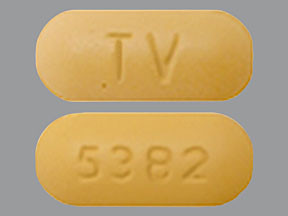
- color
- yellow
- shape
- oblong
- imprint
- 5382, TV

- color
- yellow
- shape
- oblong
- imprint
- 5382, TV
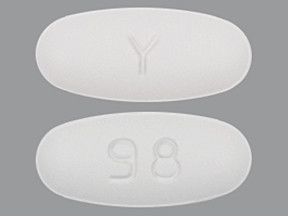
- color
- white
- shape
- oblong
- imprint
- Y, 98
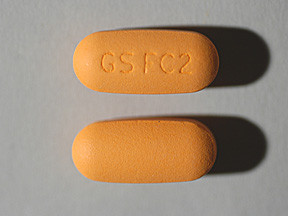
- color
- orange
- shape
- oblong
- imprint
- GS FC2
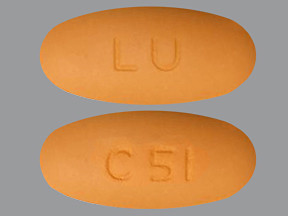
- color
- orange
- shape
- oblong
- imprint
- LU, C51
Reviews
Faq for ABACAVIR/LAMIVUDINE - ORAL
Abacavir/Lamivudine is used in combination with other medications to help control HIV infection. It helps to reduce the amount of HIV in the body, improve the immune system, and decrease the risk of complications associated with HIV.
You should take Abacavir/Lamivudine exactly as prescribed by your doctor. Usually, it is taken orally once or twice daily with or without food. It is important to take it regularly to get the most benefit from it.
If you miss a dose, take it as soon as you remember. However, if it is already close to the time for your next dose, skip the missed dose and continue with your regular dosing schedule. Do not double the dose to catch up.
Common side effects of Abacavir/Lamivudine may include nausea, diarrhea, headache, trouble sleeping, and fatigue. Rare but serious side effects may include allergic reactions, liver problems, and pancreatitis. Contact your doctor immediately if you experience any severe or persistent side effects.
Alcohol should be avoided or limited while taking Abacavir/Lamivudine, as it can increase the risk of liver toxicity and may decrease the effectiveness of the medication. Consult your doctor or pharmacist for specific advice.
Abacavir/Lamivudine should be used during pregnancy only if clearly needed, as it may cause harm to the unborn baby. It is important to discuss the risks and benefits with your doctor if you are pregnant or planning to become pregnant. It is also not recommended to breastfeed while taking this medication, as it may pass into breast milk.
Abacavir/Lamivudine can interact with other medications, including certain antibiotics, antifungals, antiretroviral drugs, and medications that affect the liver. It is important to inform your doctor about all the medications and supplements you are taking to avoid potential drug interactions.
The duration of treatment with Abacavir/Lamivudine will be determined by your doctor. It is usually taken for as long as it is effective in controlling your HIV infection and as long as you can tolerate it without severe side effects.
Abacavir/Lamivudine is not a cure for HIV infection. It is used to manage the disease and suppress the virus, but it does not eliminate it from the body. It is important to continue taking the medication as prescribed and follow your doctor's instructions for a comprehensive treatment plan.
Warning
WARNING: In some patients, the abacavir in this product has caused a serious (sometimes fatal) allergic reaction. Your doctor should order a blood test to measure your risk before you start this medication or take it again. If the blood test shows you are at greater risk, you should not take this medication and your doctor should discuss other treatment choices with you. Symptoms of an allergic reaction may include any of the following: rash, itching/swelling (especially of the face/tongue/throat), severe dizziness, trouble breathing, fever, extreme tiredness, nausea, vomiting, diarrhea, stomach pain, muscle aches, sore throat, mouth sores, or cough. Get medical help right away if you experience any of these symptoms. If you have stopped taking abacavir because of an allergic reaction, you must never take any form of abacavir again, or death could result. Tell all of your doctors and pharmacists if you have stopped taking abacavir due to an allergic reaction. Also, properly throw away any unused medications containing abacavir. Read the warning card provided with this medication for more details. If you have hepatitis B infection and HIV, you may have a serious worsening of hepatitis symptoms if you stop taking lamivudine. Talk with your doctor before stopping this medication. Your doctor will monitor liver tests for several months after you stop lamivudine. Get medical help right away if you develop symptoms of worsening liver problems.
Disclaimer
IMPORTANT: HOW TO USE THIS INFORMATION: This is a summary and does NOT have all possible information about this product. This information does not assure that this product is safe, effective, or appropriate for you. This information is not individual medical advice and does not substitute for the advice of your health care professional. Always ask your health care professional for complete information about this product and your specific health needs.
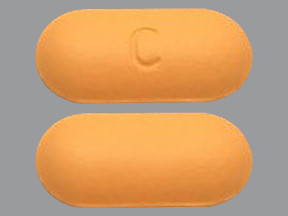
No Reviews Yet